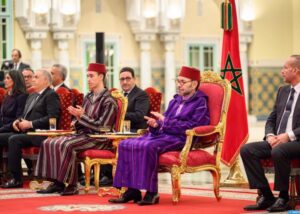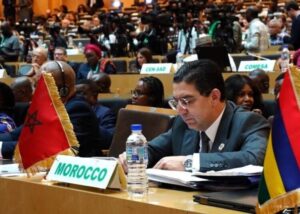Morocco’s Chamber of Councilors Approves Major Reform to Health Insurance System

Rabat, The Gulf Observer: In a landmark move toward achieving universal social protection, Morocco’s Chamber of Councilors on Tuesday approved Bill 54.23, ushering in sweeping reforms to the country’s basic health insurance system. The legislation is a pivotal component of King Mohammed VI’s vision for comprehensive social welfare and equitable healthcare access for all citizens.
The reform represents a fundamental restructuring of Morocco’s mandatory health insurance (Assurance Maladie Obligatoire, or AMO) system, consolidating various schemes under a single management authority. According to the Ministry of Health and Social Protection, this development marks a “major legislative turning point” in strengthening social protection governance across the kingdom.
Unified System Under CNSS
At the heart of the reform is the centralization of health insurance management under the National Social Security Fund (CNSS). This unified authority replaces the previously fragmented system involving multiple insurance bodies, which often led to inefficiencies, delays, and confusion for patients.
“This consolidation eliminates the confusion and delays that patients often faced when dealing with multiple insurance bodies,” stated the Ministry of Health and Social Protection.
The centralized model is expected to enhance efficiency, improve transparency, and facilitate better healthcare delivery for all beneficiaries.
Expanded Coverage for Young Adults
The approved bill introduces significant benefits for students and young adults, notably by abolishing the separate student health insurance scheme while maintaining the rights of existing beneficiaries.
One of the most impactful provisions is the increase in the age limit for dependents on family insurance plans, from 26 to 30 years old. This extension provides critical support for young Moroccans navigating higher education or entering the workforce, allowing them to remain insured under their parents’ plans for four additional years.
Clarified Access to AMO Tadamon
The new legislation also brings greater clarity to the “AMO Tadamon” program, which provides health insurance to vulnerable citizens unable to afford contributions. The reform outlines clear eligibility criteria and procedural pathways for beneficiaries, while continuing to protect public sector employees and their families.
This ensures that Morocco’s most vulnerable populations can access quality healthcare through a more inclusive and equitable system.
Transitional Support for Mutual Insurance Companies
Acknowledging the need for a smooth transition, the law incorporates provisions that allow mutual insurance companies to continue operations during the implementation period. This ensures continuity of care for existing policyholders as the country shifts toward an integrated and complementary insurance model.
Additionally, the reform empowers the CNSS to support health prevention and awareness campaigns, effectively aligning insurance management with broader public health objectives.
Advancing the Vision of “Health Dignity” for All
The Ministry framed the reform as a critical milestone in fulfilling Morocco’s Framework Law 09.21, which mandates the establishment of a single management body for all social protection schemes and the revision of related legislation. Officials emphasized that the changes are essential to guaranteeing “health dignity” for every Moroccan citizen.
A Foundation for Broader Social Protection
This reform is a central pillar of King Mohammed VI’s far-reaching initiative to expand social protection across Morocco. By creating a unified structure for health insurance management, the government is laying the foundation for future enhancements in accessibility, quality, and equity of healthcare services.
As Morocco advances its national strategy, the newly approved legislation is expected to transform the health insurance landscape, offering stronger protections and improved services to millions of Moroccans.


